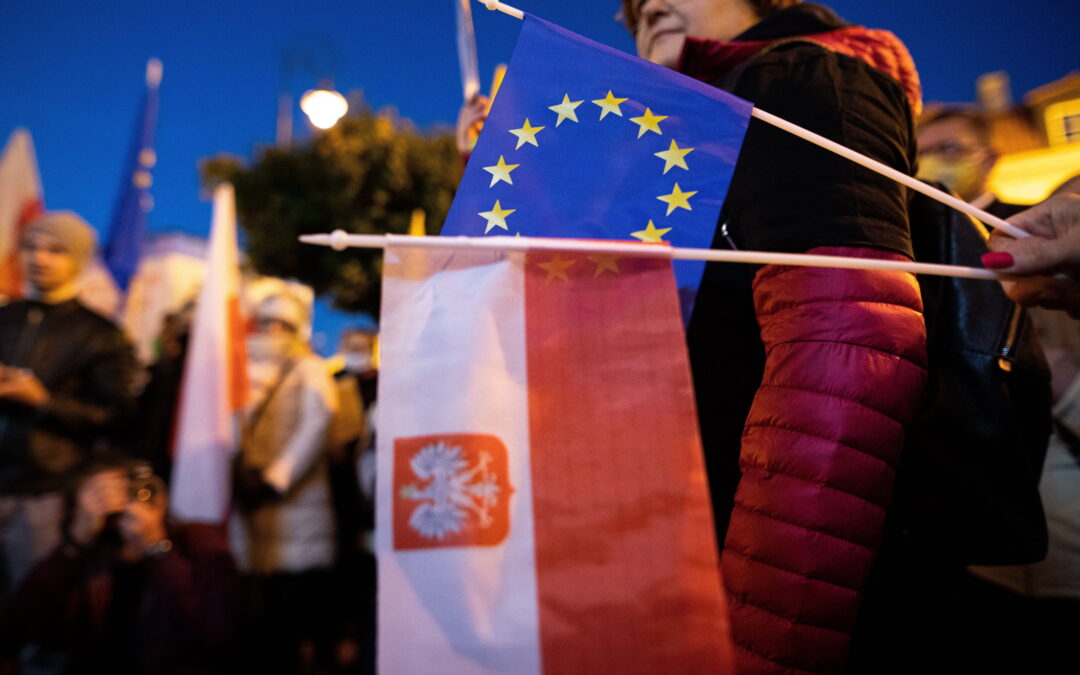Part of the European Convention on Human Rights (ECHR) guaranteeing the right to a fair trial, which was recently used to punish Poland for firing judges without explanation, is inconsistent with the Polish constitution, a top court has found.
The decision was issued today by the Constitutional Tribunal (TK), a body widely seen as being under the influence of the ruling Law and Justice (PiS) party, and which the European Court of Human Rights (ECtHR) has itself found to not be a “tribunal established by law” due to PiS’s judicial policies.
The judgement came in response to a request from Zbigniew Ziobro, the justice minister and prosecutor general, who argued that recent rulings against Poland by the ECtHR contravene the Polish constitution.
In one case, the ECtHR had found that Poland violated Article 6 of the ECHR, which guarantees the right to a fair trial, when Ziobro in 2017 dismissed judges without explanation. It ordered Poland to pay compensation to the judges who had brought the case.
In another, the European court ruled that two Polish judges had their right to a fair hearing over a job application breached by a body created during the government’s contested overhaul of the judiciary. They were also awarded compensation.
Ziobro argued that the ECHR had illegitimately assumed the right to “independently assess the status of judges, even though the judicial system is defined in the constitution of Poland”, including “the prerogative of the president to appoint judges”, reports Dziennik Gazeta Prawna.
In its ruling today, the TK agreed with him. It found that Article 6 of the ECHR is inconsistent with the Polish constitution to the extent that “it allows the ECtHR or national courts to disregard constitutional provisions, statutes and judgements of the Polish Constitutional Tribunal”.
The same article also “enables the independent creation of standards concerning the procedure of nominating judges of national courts by the ECtHR or national courts in the process of interpreting the convention”, announced the TK, quoted by TVP Info.
The TK’s ruling was issued unanimously by a panel of five judges, all of whom were nominated by PiS. Two of them – including the chairman, Stanisław Piotrowicz – were PiS MPs before being appointed to the tribunal. Another, Mariusz Muszyński, was last year found by the ECtHR to have been illegitimately appointed.
The TK also issued a similar ruling in November, again at the request of Ziobro, finding the part of the ECHR that guarantees the right to a fair trial to be incompatible with the Polish constitution.
As such, today’s ruling “has changed little”, Jacek Zaleśny, a scholar of constitutional law, told Dziennik Gazeta Prawna. “As for the consequences…at the level of Polish law, this judgement becomes binding and applicable, while at the level of the Council of Europe and the Convention itself, this judgement is not applicable.”
Gazeta Wyborcza, a leading daily, notes that today’s ruling will provide the government with a pretext not to implement certain ECtHR judgements.
A number of the government’s critics have noted that the TK’s rejection of part of the ECHR came on the same day as Russia announced it would no longer participate in the Council of Europe, the organisation whose members are signatories to the ECHR.
“You have no shame,” tweeted Adam Bodnar, who until last year served as Poland’s commissioner for human rights. “The Polish TK is [standing] in a single line with the Russian Constitutional Tribunal.”
“In the face of a humanitarian crisis, we need a strong democracy as never before,” said Sylwia Gregorczyk-Abram, a lawyer and activist, quoted by Gazeta Wyborcza. “Meanwhile, the political Tribunal once again distances us from European standards of human rights protection.”
Wstydu nie macie. Polski TK w jednym rzędzie z rosyjskim Trybunałem Konstytucyjnym.
— Adam Bodnar (@Adbodnar) March 10, 2022
Main image credit: Jakub Orzechowski / Agencja Wyborcza.pl

Daniel Tilles is editor-in-chief of Notes from Poland. He has written on Polish affairs for a wide range of publications, including Foreign Policy, POLITICO Europe, EUobserver and Dziennik Gazeta Prawna.




















